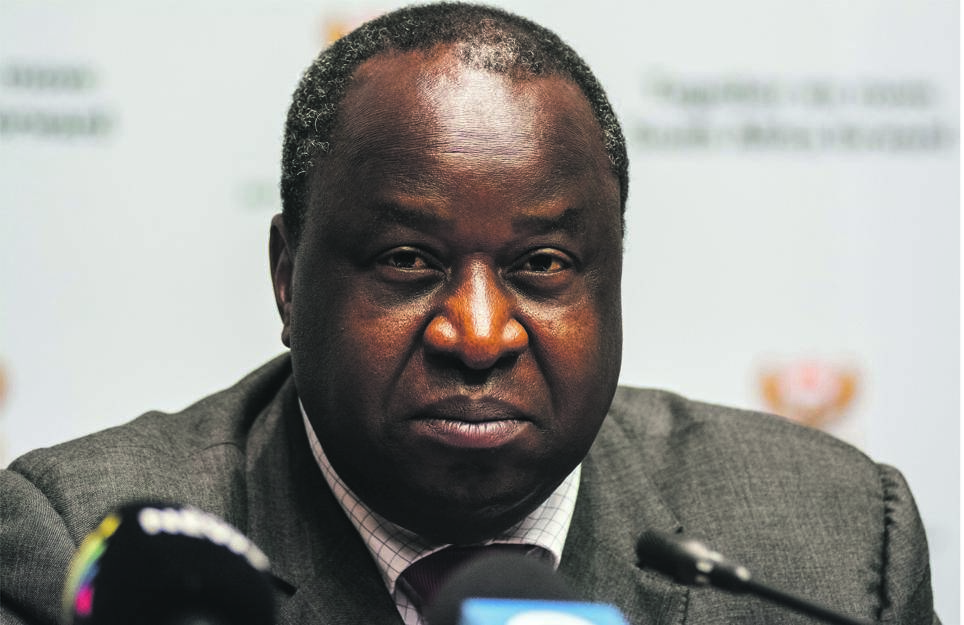
With our economic growth outlook at a paltry 0.5% and load shedding the new normal, tax increases are a given
The state’s hefty salary bill, which makes up 35% of government spending, has been identified as the budget item where the most cost-cutting can take place, for the umpteenth year in a row.
Jeff Schultz, a senior economist at BNP Paribas SA, said that although the current wage agreement for union members in the public service would only expire in March next year, about 33% of employees in higher posts – who did not belong to unions – could be targeted for savings this year.
Increases might be frozen, bonuses scrapped and pay progression to higher salary levels could be limited.
According to Schultz, this would hopefully set the tone that inflation-related increases would be strictly adhered to in the next round of salary negotiations, which must be finalised by March 2021.
This, alongside other savings in the operating costs of departments, could bring savings of close to R100 billion over the next three years.
This is less than the R150 billion that was mentioned in the medium-term budget policy framework in October, but it would be a start, said Schultz.
According to Treasury documents, the state’s total expenditure on its salary bill more than trebled between 2006/7 and 2018/19 – from R154 billion to R518 billion.
Above-inflation salary increases are largely responsible for the increased expenditure.
Lullu Krugel, the chief economist at PwC, said that decisive action to bring personnel costs under control would help to restore business confidence in government’s ability to improve the fiscal situation.
State debt is rising steadily and is now at about 60% of GDP.
As a result of financial aid to dysfunctional state-owned enterprises such as Eskom, the debt burden could rise to as much as 68% by 2022.
During a budget preview presentation in Johannesburg last week, PwC said the budget deficit for 2019/20 was estimated at 6.3% – the highest since 1992.
Krugel said this was based on the assumption of a R65 billion undercollection of taxes compared with Budget 2019 plans, and without any other expenditure adjustments.
“If the minister were to freeze salary increases in the public service for this year, the deficit could be reduced to 5.4% of GDP,” she said.
Schultz said the state’s onerous salary obligations were diverting money away from other social obligations and necessities.
During his state of the nation address, delivered on Thursday, President Cyril Ramaphosa admitted that low levels of economic growth meant that government’s income was insufficient to cover expenses, debt levels were becoming unsustainable and expenditure was spent on debt-servicing costs rather than on infrastructure and productive activity.
“We cannot continue along this path,” he said.
Ramaphosa said Finance Minister Tito Mboweni would announce various measures to curb expenditure and improve the fiscal position during his budget speech on February 26.
Government was also engaging unions about how the state salary bill can be contained and wastage reduced, the president said.
The budget speech will come amid a weak economic growth outlook of barely 0.5% for the year.
A large part of the pessimism reflected in this forecast is being laid at the door of Eskom’s load-shedding measures, which are thwarting economic growth, said Schultz.
He said load shedding in the first half of the year could cost GDP growth up to 0.4 percentage points, which informs BNP Paribas’ growth expectation of just 0.5% for the year.
It is estimated that Phase 2 load shedding costs the economy R1 billion a day. With Phase 4 load shedding, losses shoot up to R1.9 billion a day.
Krugel said that if Mboweni’s economic plan, which was tabled last year, were to be implemented, it could boost economic growth by 2.3% and create 1 million additional job opportunities.
She said everyone was keeping an eye on the figures to see whether South Africa’s economy had fallen into a technical recession in the fourth quarter.
But there are already scores of indications that the economy is treading water.
For the person in the street, it has already felt like a recession for some time, with increasing job cuts and an official unemployment figure sticking stubbornly at 29%.
According to Kyle Mandy, the head of tax at PwC, the expected deficit of R65 billion in tax revenue for the year, is largely as a result of lower collection of VAT and company taxes in a weak economy.
In the 2019 budget, provision had already been made for about R10 billion in additional taxation.
In the upcoming budget speech on February 26, tax increases of more than R25 billion can be expected.
This could be in the form of increases in VAT and personal income tax.
Mandy is of the opinion that an increase in VAT is possible because the government has few other options to increase its income.
The VAT rate was increased from 14% to 15% in 2018.
PwC is of the opinion that taxpayers can prepare for inflation-related increases in the general fuel levy (15c a litre, or even 20c/l), an increase of about 30% in the fuel price to provide for the Road Accident Fund, a longer list of luxury items that ad valorem tax will be levied on, higher sugar taxes, and inflation-related increases in so-called sin taxes on tobacco and alcohol products.
What are you expecting out of the budget? Do you think SA’s already squeezed consumers can take the additional taxes that may come?
SMS us on 35697 using the keyword BUDGET and tell us what you think. Please include your name and province. SMSes cost R1.50. By participating, you agree to receive occasional marketing material




 Publications
Publications
 Partners
Partners









